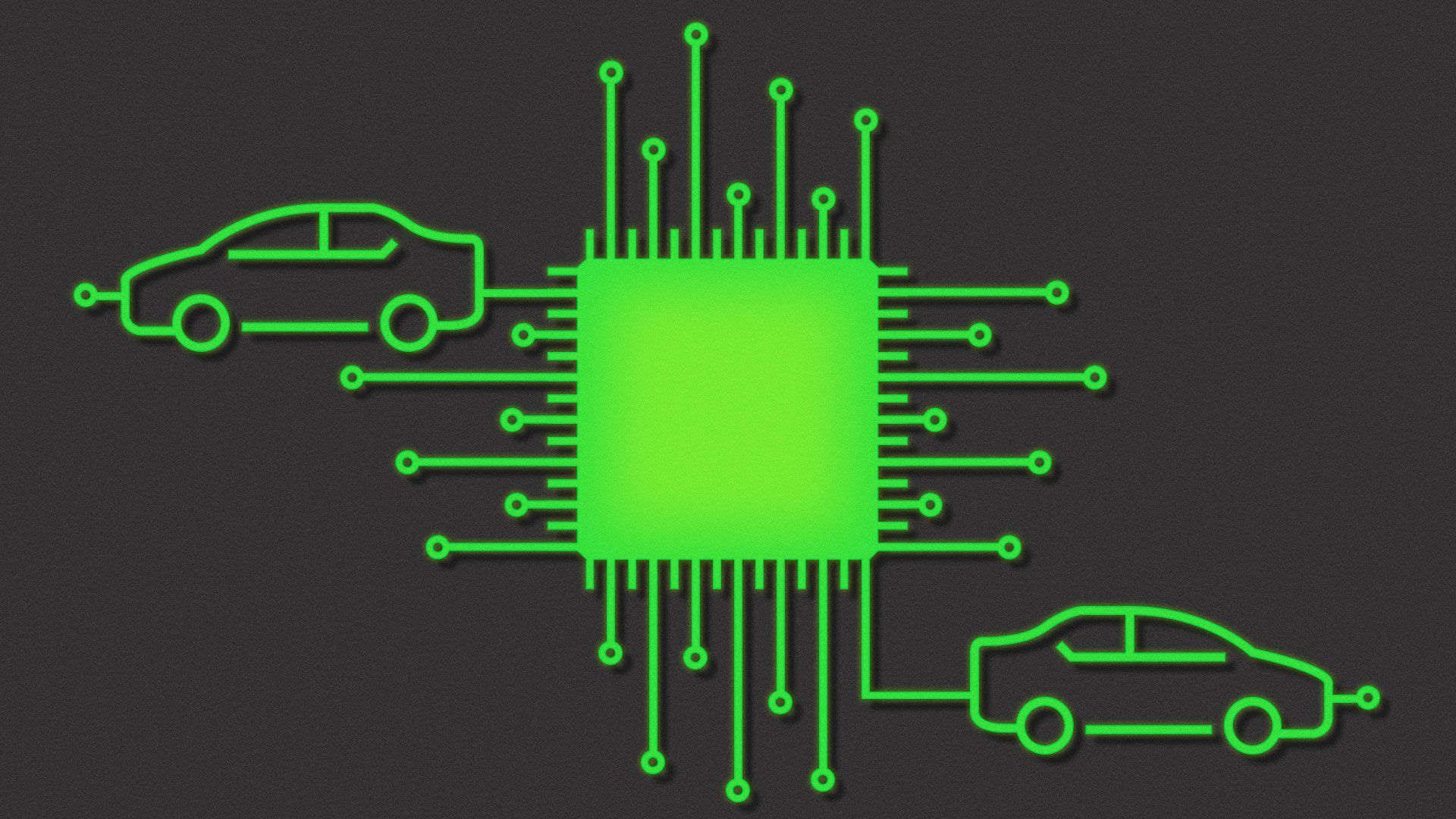Fisker wants to become the Apple of the automotive world
Add Axios as your preferred source to
see more of our stories on Google.

Illustration: Eniola Odetunde/Axios
Car designer Henrik Fisker this week raised more than $1 billion for his namesake electric car company, but unlike other electric vehicle entrepreneurs attracting capital recently, making cars is not part of his plan.
Why it matters: In an industry ripe for reinvention, Fisker's aim is to become the Apple of the automotive world — a fabless manufacturer that designs and markets cool cars but farms out the production to others, avoiding the huge capital outlays and manufacturing pitfalls that have dogged Tesla for a decade.
Driving the news: On Monday, Fisker reached a deal to go public by merging with a special purpose acquisition company backed by Apollo Global Management. SPACs are an increasingly popular IPO alternative also used recently by Velodyne and Nikola to go public.
- Proceeds from the transaction, which valued Fisker at $2.9 billion, will help bring its Fisker Ocean electric SUV to market by late 2022.
The big picture: We're on the cusp of a historic shift to electric, self-driving cars. But the burden of technology investments is overwhelming for many, requiring even the world's biggest auto giants to partner up on redundant development.
- Meanwhile, well-funded newbies like Nikola, Rivian and Lucid Motors — none of whom have produced a single vehicle yet — are mirroring Tesla and spending heavily to set up their own factories.
What's happening: A car used to be defined by its engine. But in the electric vehicle era, batteries and electric motors will be mere commodities, predicts consulting firm KPMG.
- Software-driven features, not hardware, will set cars apart in the future.
- For Fisker, famous for designing sensuous cars like the Aston Martin Vantage and the BMW Z8, it represents a new business model.
- "I forced myself to not think like a car guy for a moment," he told Axios.
The Ocean is billed as the world's most sustainable car — an affordable, premium, electric SUV with a solar roof, vegan and recycled materials throughout, and a battery range of 250 to 300 miles.
- Its patented one-touch "California mode" lowers and slides nine glass windows and panels to open the entire cabin for an open-air feeling.
- It'll be priced attractively, too, starting at $37,499 before federal tax credits, or $379 per month to lease.
The real innovation is Fisker's business model. Instead of developing its own electric powertrain or sinking money into a factory, Fisker is in talks with Volkswagen to use its modular EV platform and assemble Fisker vehicles at a VW plant in Europe.
- Instead of dealerships, Fisker will sell cars online but have "brand experience centers" and pop-up locations in key markets in the U.S. and Europe.
- Vehicle service will be outsourced, too, through Pivet, a unit of Cox Automotive.
- The plan is for a full lineup of eight plug-in models by 2026.
What they're saying: Fisker's asset-light approach makes it easier for newcomers to break into the auto industry, said Kristin Dziczek, vice president at the Center for Automotive Research.
- "Imagine if Tesla had done this. They have great design, but struggled mightily in manufacturing."
Flashback: In 2014, Fisker's first startup EV company, helped by a government clean-energy loan, went bankrupt, costing taxpayers $139 million.
The bottom line: With lessons learned from that failure, Fisker says he's plotting a less risky path this time around. But for all EV companies there's still loads of uncertainty about how the future will play out.
